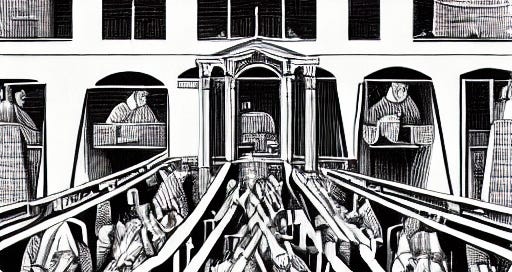“Unbeknownst to Matthew,” his attorney, Steven G. Kalar, testified, his probation officer’s assistant was not his probation officer’s assistant. They didn’t work in the building. They weren’t training for any sort of higher role. They were an FBI agent, undercover, monitoring Matthew.
That agent could, Kalar concluded, “observe firsthand the nature, scope and type of mental health problems Matthew presented.”
In this scenario—watching a mentally ill parolee judged “very sick”—too impaired for therapy, his world shadowed in paranoia—the FBI had options. It chose to escalate the situation.
On November 30, 2012, a stranger introduced himself to Matthew. The man said he knew people in Afghanistan, had Taliban connections—Matthew had expressed interest, over the preceding years, in the organization. This stranger was another FBI agent.
The Bureau’s criminal complaint suggests that Matthew immediately, upon meeting this man, “proposed conducting a car-bomb attack against a bank in the San Francisco Bay Area. He proposed structuring the attack to make it appear that the responsible party was an umbrella organization for a loose collection of anti-government militias and their sympathizers.”
Whether Matthew knew how to construct a car bomb—whether he had the political sophistication, or mental presence, to structure an attack in a specific way—these seem dubious assumptions.
And they neglect what the informant reported back to the FBI. As Matthew boasted, on no basis, of his explosives knowledge and capabilities, he also hedged his claims—“saying he wants to stay away from weapons and explosives in accordance with his probation.”



